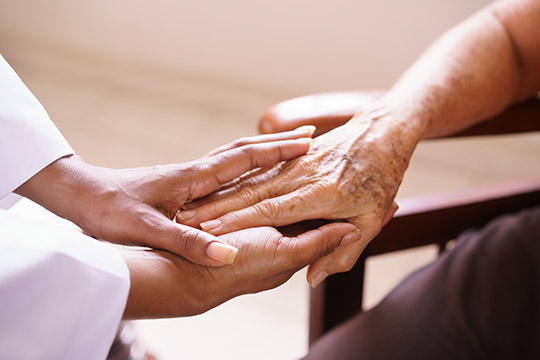
Bill 175 would make sweeping changes to the way home and community care services are coordinated and delivered in Ontario.
What is Bill 175?
In 2019, Ontario introduced health-care reforms through Bill 74, The People’s Health Care Act, 2019 and the Connecting Care Act, 2019 (CCA).
This led to the creation of a new agency, Ontario Health, that is responsible for managing health-care services across the province. The reforms also include a plan to dissolve and amalgamate the Local Health Integration Networks (LHINs) – the province’s regional health authorities – and other organizations like Cancer Care Ontario and eHealth Ontario.
The reforms introduced a new model of care, called Ontario Health Teams (OHTs), which are groups of health-care providers and organizations that are clinically and fiscally accountable for delivering a full and coordinated continuum of care to a defined geographic population (usually covering a geographic region of no more than 300,000 people). The province is in the process of transitioning to the OHT format, so health-care services are currently being regionally managed by a mix of LHINs and OHTs.
On February 25, 2020, Ontario health minister Christine Elliott introduced Bill 175, Connecting People to Home and Community Care Act, 2020. Bill 175 would repeal the Home Care and Community Services Act, 1994 (HCCSA) and move the home and community care legislative framework to the CCA, bringing home and community care services into the province’s new health-care scheme.
In early June, in the middle of the COVID-19 pandemic, the Ontario government resumed consideration of the Bill. Public hearings were held over three days in mid-June, with little notice to the public and interested health and advocacy groups. Bill 175 was ordered to third reading on June 24.
The timing of the Bill is concerning, as it is being moved quickly through the Ontario Legislature, and public consultation is being conducted, during a pandemic, when the health-care sector, advocacy groups, and the public are occupied with responding to COVID-19.
Why is Bill 175 problematic?
When it comes to the Bill itself, the government’s plan to repeal the legislation currently governing home and community care services (the HCCSA) and include these services under the province’s new health-care legislation (the CCA) would mean many important elements of the current legislation would be moved to regulations and policies. This includes the definition of community care services, the settings of care, eligibility for services, an updated version of the Bill of Rights and requirements for handling complaints.
Moving the governance of these services to regulations and policies allows cabinet to make changes at any time, without all-party debate or public consultation of the proposed changes.
Bill 175 would transfer the management of home and community care services to Ontario Health and make OHTs and other Health Service Providers (HSPs) responsible for the coordination and delivery of these services.
These proposed changes could lead to reduced public accountability for these services as Ontario Health’s day-to-day operations are governed by a board of directors, many of whom are current or past executives of private, for-profit organizations.
Additionally, OHTs and HSPs are composed of both for-profit and non-profit organizations, some of which offer home care services, which could lead to a conflict of interest where the organizations making decisions about home and community care service coordination and delivery are also bidding on and potentially delivering these services.
The Bill does not outline a standard basket of services or standards for care, which could mean that each OHT or HSP will be responsible for determining the services and standards it provides for its population. This will undoubtedly lead to inconsistent home and community care services and standards across the province, and a risk that a wide range of organizations coordinating and providing these services could lead to increased privatization, fragmentation, and inequity
There are also concerns that moving the coordination and delivery of these services to OHTs and HSPs will result in duplication of work and increased costs for the system.
Perhaps most important, is that Bill 175 does not address any of the long-standing issues with home and community care, such as access to care, standards of care, quality of care, or staffing problems. As it was written before COVID-19, it also ignores the experiences of the last four months and fails to address concerns highlighted by the pandemic.
What is Federal Retirees’ position on Bill 175?
Bill 175 goes against Federal Retirees’ vision for a national seniors strategy, where we advocate for quality home and community care services for older Canadians and equitable health-care services that are not dependent on your postal code. It also does not align with Federal Retirees’ call for a national review of long-term care and the implementation of national standards for long-term care and home and community care.
Implementing a change to the way health services are delivered in the middle of a pandemic, when our health-care system is already in overdrive and as we are trying to prepare for future waves of COVID-19, is not in the best interests of Ontarians, and especially older Ontarians who are among those who are most reliant on these services.
It also goes against the Ford government’s commitment to investigate the situation we witnessed in long-term care settings during the pandemic and enact changes to improve long-term care and health-care services for older Ontarians.
Want to lend your voice to Federal Retirees’ advocacy against Bill 175? Click here to tell your MPP to oppose Bill 175.

